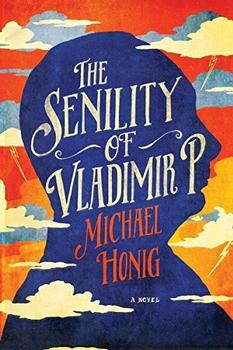Summary | Excerpt | Reviews | Beyond the book | Read-Alikes | Genres & Themes | Author Bio

Written with the pace and thrust of a thriller, this is a stunning intellectual adventure, a moral fable bursting with art, poetry, music, and profound philosophical insight.
In this gripping
fable, a young man on an aimless journey crosses a border into a world of
unexplained threats and terrifying violence.
Drawing readers in with a cool, oddly appealing bluntness, the narrator of The
Society of Others launches a disturbingly surreal tale of his adventures in
an unnamed country somewhere in Eastern Europe. His plan is to hitchhike through
Europe without any destination, but like a character in a Kafka novel, he finds
himself confronting a world that defies rational explanation and descending into
an orgy of violence that threatens to destroy his power to control his identity.
Written with a pace and thrust of a thriller, The Society of Others is a
stunning intellectual adventure, a moral fable bursting with art, poetry, music,
and profound philosophical insight.
The Society of Others is an extraordinary book that can be read on
many levels. A number of reviewers compare it to Kafka's works. There are similarities but also differences, in that Kafka tends to set up impossible
situations (such as a man being transformed into an insect) and then imbues his
stories with such realism and attention to detail that the events become real. Nicholson achieves the same end
result but starts, as it were, from the opposite end - moving from real to
surreal with such aplomb that the reader is likely to cross the border line from
one to the other with, almost, unquestioning acceptance.
The fact that The Society of Others is open to interpretation has led
to mixed reviews. For example, Geoffrey Wansell writing for the Daily Mail
(UK) says, 'it is thrilling in every sense, but it is also hypnotic, fast-moving, and
intellectually challenging, as it twists and turns, leaving you confused,
uncertain, even uncomfortable, and yet utterly hooked. A philosophical master
class, it is quite staggeringly good, whereas the reviewer for Publishers Weekly (who some might feel have missed the point) says, 'the moral of the story—you snots
in the West don't know how good you have it—comes through so early that the
protagonist's final transformation to good, loving citizen and son feels
redundant.
As always, you can read an excerpt for yourself, taken from the first
chapter. However, read in isolation, these first pages don't do justice to the book as a whole. ..continued
Full Review
(456 words)
This review is available to non-members for a limited time. For full access,
become a member today.
(Reviewed by BookBrowse Review Team).
William Nicholson is a playwright for
film, TV and stage. His TV credits include Shadowlands (the life of C.S. Lewis)
and Life Story, both of which won
the BAFTA Best Television Drama award in their year. His
first play, an adaptation of Shadowlands for the stage, was Evening
Standard Best Play of 1990, and went on to a Tony-award
winning run on Broadway. He was nominated for an Oscar for the
screenplay of the film version, which was directed by Richard
Attenborough and starred Anthony Hopkins and Debra
Winger.
Since then he has ...
This "beyond the book" feature is available to non-members for a limited time. Join today for full access.

If you liked The Society of Others, try these:

by Michael Honig
Published 2017
A biting satire of a particular despot and a deeply humane allegory of the fragility of goodness and the contagion of unchecked power.

by Javier Marías
Published 2014
An immersive, provocative novel propelled by a seemingly random murder that we come to understand—or do we?—through one woman's ever-unfurling imagination and infatuations.
Read the best books first, or you may not have a chance to read them at all.
Click Here to find out who said this, as well as discovering other famous literary quotes!